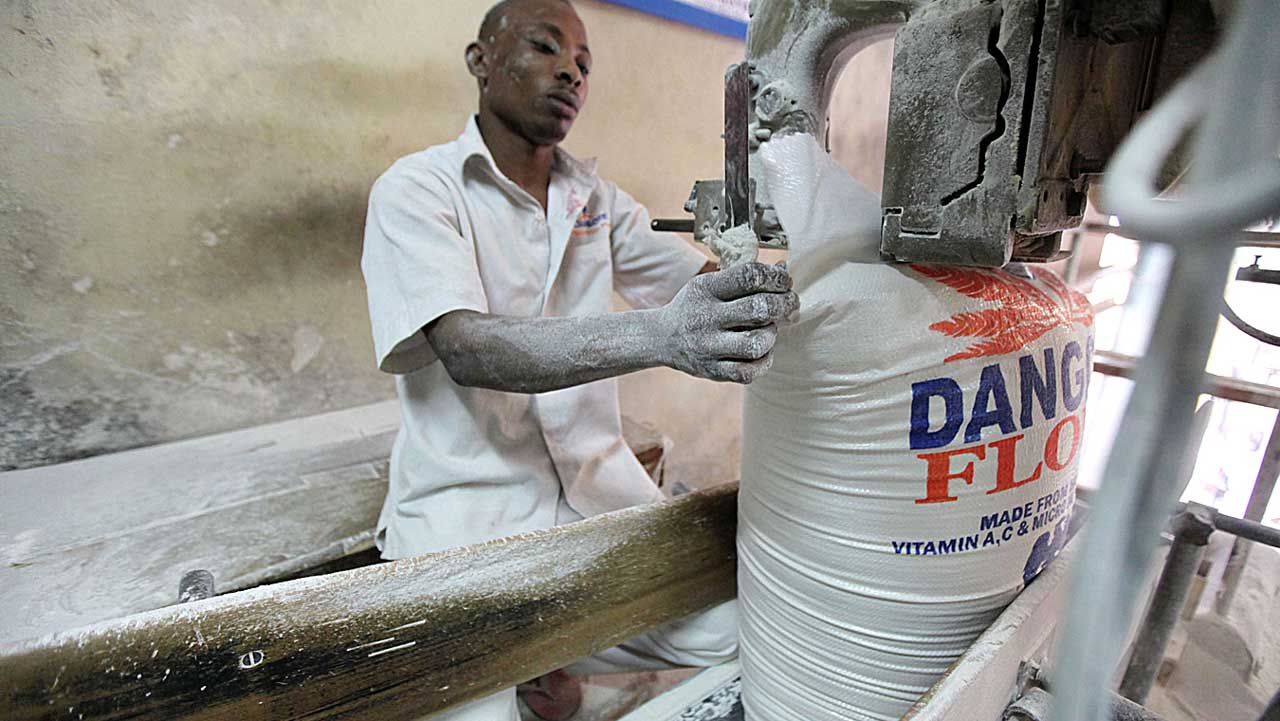
• Operators blame low purchasing power, poor power supply
The consumer goods subsector is reeling under the pangs of harsh operating environment, just as the earnings of the sectors listed equities remained subdued with negative sentiments due to policy issues.
Indeed the sector is currently bogged with heavy financing and operating costs, even as manufacturers are still faced with numerous challenges that are largely responsible for the not too impressive performance in the last few years.
Due to the purchasing power of the average Nigerian which is quite low, worsened daily by rising inflation, unemployment and underemployment, there seems to be a reduction in the demand for fast moving consumer products with the attendant effect on revenues and profits.
Also, the industry is grappling with rising production costs mainly due to inadequate or in some places non-existent power supply. Diesel costs are spiralling and coupled with the low level of power supply, are putting a financial burden on the sector.
Furthermore, the weak corporate earnings by these companies is coming on the heels of increase in cost of sales and administrative expenses as most companies operating in the country battled hike in materials used for production, among others.
For instance, Flour Mills of Nigeria (FMN) Plc, Honeywell Flour Mills Plc, and Northern Nigeria Flour Mills (NNFM) Plc have reported a total net profit decline of N8.158 billion in their nine months ended December 31, 2018.
Accordingly, FMN net profit declined by N5.351 billion, Honeywell Flour profit after tax dropped by N2.637 billion, while NNFM posted a loss after tax of N169.659 million for the period under review.
Flour Mills’ profit before tax and profit after tax declined 42.2 per cent and 40.4 per cent to N11.3 billion and N7.9 billion, respectively. Northern Nigeria Flour Mills reported a loss of N169.7 million as against N160 million loss reported in nine months ended December 31, 2017, while Honeywell Flour Mills, reported 95 per cent drop in profit to N143 million in nine months of 2018 from N2.78 billion reported in nine months of 2017.
Further analysis showed that Flour Mills’ turnover and net income contracted by 6.28 per cent and 40.7 per cent to settle at N400.64.69 and N7.88 billion respectively compared to nine months, 2017 records.
For Honeywell Flour, revenue grew by 0.79 per cent to N55.08 billion from N54.65 billion achieved in 2017, while costs of sales also up by 8.65 per cent to N45.61 billion from N42 billion in 2017.
NNFM reported increase in cost of sales and selling expenses that rose by 38 per cent and 74.2 per cent respectively, despite improved revenue of about 59.5 per cent in the period under review
Speaking on Flour Mills result, the Group managing director of the company, Mr. Paul Gbedebo said, “the results are largely a reflection of our focus on driving volume growth while improving operational efficiency and ramping up strategic marketing and promotional activities to win over new market segments in our food business.
“Despite the devastating effect of the traffic congestion in Apapa on our operations, we are quite positive that we will see improvements across major business segments before the close of the financial year, as we continue to focus on delivering on our promise of quality to our consumers.”
The Chief Operating Officer of InvestData Consulting Limited said the sector is bogged with heavy financing and operating costs, noting manufacturers are still faced with numerous challenges that are largely responsible for the not too impressive performance of the manufacturing sector and the competitiveness of Nigerian manufactured products.
He noted that available data showed that the Nigerian manufacturing sector was bedeviled by various challenges, manifesting in the form of high inventory of unsold finished products, inadequate electricity supply, frequent increases in electricity tariff in the face of poor services from distribution companies and abnormally high interest rates.
“Others are, high excise duties on some products, inadequate trade facilitation infrastructure, expensive price of natural gas, unfriendly port environment, multiplicity of taxes/levies/fees, exorbitant cost of haulage, congestion at the Lagos seaports arising from the non-functionality of other seaports in the country, high incidence of smuggling and counterfeiting of locally manufactured products, to mention but a few,” Omordion said.
He however said that these companies especially Flourmills and Honeywell, have a great potentials, concerning their increased activities on backward integration and diversification of business lines will in the future improve sales and earnings.
An independent investor, Amechi Egbo said: ”Performance in the consumer goods sector depends heavily on consumer behavior. When the economy grows the sector will see an increased demand for higher-end products but where there is weak purchasing power, people will move away from what is a bit expensive to a cheaper one so that they can still satisfy their urge for that particular product
“There is overcapacity in the industry as capacity far outweighs the demand for flour. The industry is highly competitive; this has led to price cutting, customized bread shapes for aesthetic appeal and increase in bread sizes to attract the consumer who has a wide variety of bread to choose from. This industry is definitely a buyers’ market.”
[ad unit=2]



